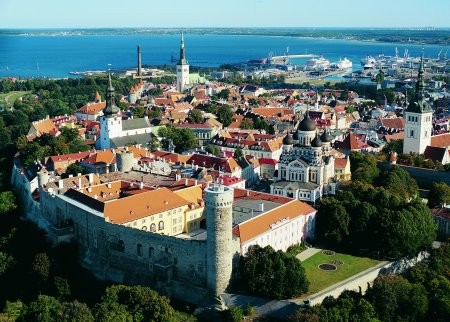Tallinn is stepping up efforts to reduce the number of short-term rental apartments in its historic Old Town district, aiming to restore balance between tourism and local residents. The new development plan, recently adopted by the city, focuses on encouraging more permanent residents to live in this iconic area while maintaining its status as a major tourist destination.
The Old Town is one of Tallinn’s most visited spots, drawing crowds year-round with its medieval charm and vibrant culture. However, the rise of short-term rentals has created tensions between tourists and locals. Many residents have reported noise, overcrowding, and disruptions caused by large groups staying in apartments originally intended for long-term living.
Deputy Mayor Madle Lippus said, “The Old Town is currently an important tourist destination, and we want to keep it that way. At the same time, it’s also important to preserve the local population and make the area attractive for domestic tourists as well.”
Local resident and entrepreneur Ville Jehe, who lives on Viru tänav, described the challenges of life in a heavily touristed area. “Summer really is extremely intense. I try to spend less time there in the summer because even getting to my building is often difficult by car. Even walking takes time,” he explained. Jehe also highlighted the lack of clear regulations for short-term rentals, noting that some apartments can accommodate very large groups — one near him can host up to 16 people at a time.
Ain Käpp, a board member of the Estonian Hotel and Restaurant Association, pointed out that the current absence of strong rules allows some short-term rentals to operate almost like mini hotels, causing conflict with local residents. “If someone discovers that the home they’ve bought is effectively a hotel, they might not be very happy or satisfied with that,” he said.
Currently, the city government has not outlined specific measures on how it will regulate short-term rentals moving forward. Käpp suggested that requiring all such apartments to register would be a helpful first step. Meanwhile, Jehe believes housing associations should have more say, including the right to decide whether short-term rentals are allowed in their buildings at all, and to set conditions, such as covering increased utility costs.
To guide future policy, a study on the short-term rental market has been commissioned by the Ministry of Economic Affairs and Communications. The results, expected by fall 2025, will help clarify the best way forward.







